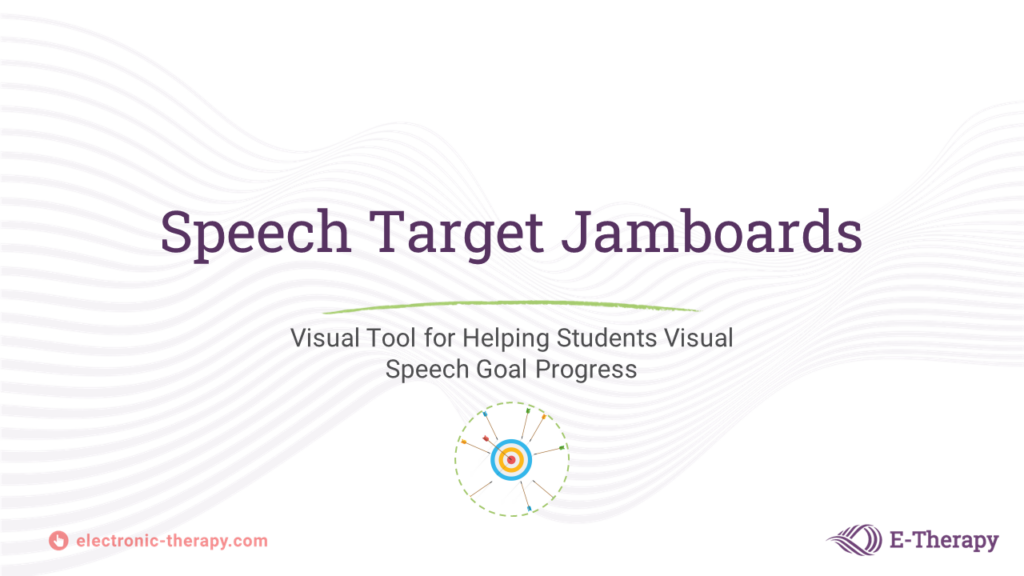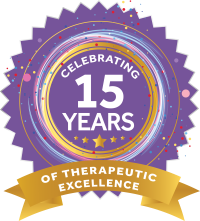 Two important keys to improving a child’s productivity during articulation therapy, in both onsite speech therapy and teletherapy sessions, is to
Two important keys to improving a child’s productivity during articulation therapy, in both onsite speech therapy and teletherapy sessions, is to
- 1. increase the quality and quantity of target sound, minimal pair, or maximal pair practice in varied contexts, and
- 2. give specific feedback to help them get closer to their target or goal
Activities that promote mass practice need to be engaging. Using PowerPoint games specifically designed for speech therapy and teletherapy, such as Picture Reveal PowerPoint Game for Articulation Practice, can supply both extensive practice opportunities while providing some fun and interactivity.Once students are engaged and providing more practice attempts, feedback continues to be important. Personally, having students produce word after word using the same distorted R sound just to race through has never helped any of my students get closer to their learning targets.Students tend to respond well to specific feedback. They not only need to know how to increase the accuracy of their productions, therapists should get in the habit of naming and noticing what they did well rather than just saying, “Good job!” all the time.
Using Speech Targets for goals
Using a Speech Target is very helpful in explaining to students how far or how close their productions are to their own learning goal. Using a tool such as the Speech Targets Jamboards can help explain to students that no one has perfect speech, but we work to get as close to the target as possible. I also stress that no one hits the target 100 percent of the time. Targets are specific to the individual student.Use the Speech Target together with feedback such as, “ . . . try lifting your tongue and see if that gets you closer to the target.” Speech therapy should be fun and motivating, but it is still work and sometimes feels hard or frustrating. Even through the webcam, students show how they are feeling on their faces. As I pick up on these cues, I may stop for a bit to talk with the student and ask them if they are feeling frustrated. I tell them that if they are feeling frustrated or tired, it means they are working hard.Effort and motivation are linked. I have found that students may be more willing to push through difficulties when they hear you name and notice their efforts.
Speech therapy should be fun and motivating, but it is still work and sometimes feels hard or frustrating. Even through the webcam, students show how they are feeling on their faces. As I pick up on these cues, I may stop for a bit to talk with the student and ask them if they are feeling frustrated. I tell them that if they are feeling frustrated or tired, it means they are working hard.Effort and motivation are linked. I have found that students may be more willing to push through difficulties when they hear you name and notice their efforts.
Using Speech Targets for self-reflection
Using Speech Targets also helps students to self-reflect. Building self-reflection into therapy sessions facilitates shifting the responsibility of increased accuracy more toward the student. This is especially important to students who have been in speech for many years and don’t appear to be self-monitoring. Older students also need opportunities to engage in conversations about their speech goals.Kids are more than their speech – they are whole persons with fears, passions, triumphs, and failures. Articulation therapy may feel very risky to a 5th grader who has been in speech since preschool. They literally know the drill. Using a therapy session periodically to discuss their opinions about how therapy is going can be useful in creating trust.Striking a balance between presenting engaging activities and providing “just right” feedback are important for successful speech therapy sessions, whether the service is provided via teletherapy or delivered in an onsite setting.For more articulation practice activities, check out Articulation Jewels Editable Jamboard.
Need activities for your teletherapy sessions?
Make sure to follow us on Facebook, so you’ll be the first to know! And check out all the activities here on our blog!
